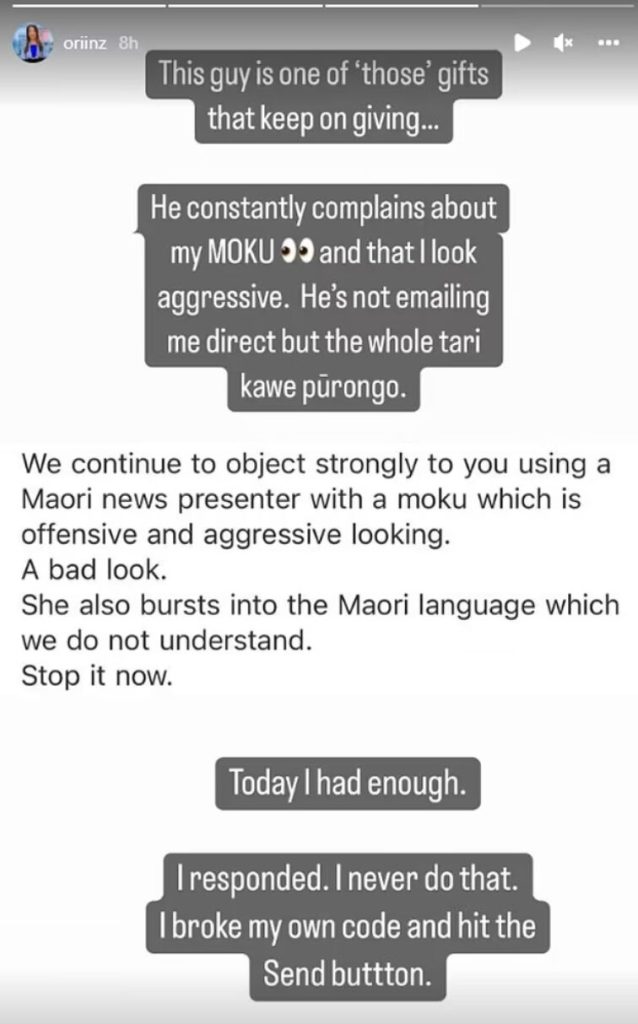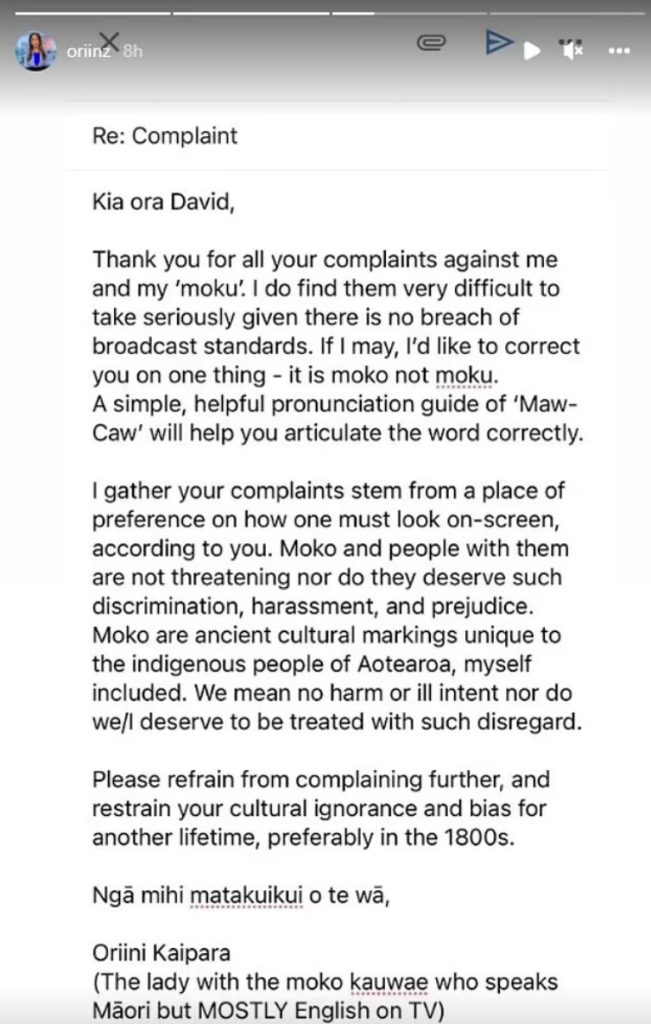The television host, who proudly wears a stunning Māori face tattoo, responded with grace to hurtful comments from a viewer, passionately reaffirming her deep pride in her cultural heritage and identity.
Facial tattoos often spark heated debates online, with some questioning their place outside of the body, while others celebrate their profound cultural significance.
Oriini Kaipara, 41, has made history as a trailblazer in television presenting. She became the first-ever primetime newsreader at New Zealand’s Newshub to sport a moko kauae, a revered cultural symbol for Māori women.
For the Māori people, the indigenous Polynesians of mainland New Zealand, the moko kauae is an emblem of heritage and identity. Traditionally placed on the lips and chin, these facial tattoos signify a woman’s family ties, leadership within her community, and a tribute to her ancestry, social standing, and unique abilities.

Despite receiving widespread praise, David voiced his displeasure with Kaipara’s moko kauae in an email to Newshub.
The Daily Mail reported that David expressed strong opposition to having a Māori newsreader with a moko kauae, calling it “offensive and aggressive.” He added, “It’s not a good look. Also, she speaks in the Māori language, which we don’t understand. Please stop it immediately.”
In the face of this negativity, Kaipara took a stand with admirable courage. She shared screenshots of the messages on her Instagram story, responding with grace and dignity.
She wrote, “Today was the day I had enough. I finally responded, which is something I never do. I went against my own principles and clicked the send button.” Her post was accompanied by a screenshot of David’s message.

Kaipara responded to David with an email, making it clear that she couldn’t take his complaint seriously, as “there is no violation of broadcast standards.”
She also took the opportunity to correct his spelling of moko, as David had mistakenly written “moku.”
In her email, Kaipara pointed out that his complaints seemed rooted in personal preferences about how people should look on screen. She stressed that moko and those who wear them should not be subjected to discrimination, harassment, or prejudice, as they are in no way threatening.
“We have no intention to cause harm or ill will, and we/I do not deserve to be treated with such disrespect,” she wrote. “Kindly refrain from further complaints and try to overcome your cultural ignorance and bias, as if you were living in the 1800s.”

Kaipara’s response to the criticism is truly inspiring. She handled the situation with remarkable dignity, not only standing up for her cultural identity but also using the moment to educate and encourage others to embrace their heritage without fear of judgment. Her ability to remain poised, despite the negativity, demonstrates the power of resilience and pride in one’s culture.
I think her message about the importance of representation is especially crucial. The fact that some individuals are threatened by her mere presence on screen highlights the ongoing need for more diverse voices and faces in media and other industries. It’s a reminder that true progress comes when people are empowered to authentically express themselves.
What’s your take on how Kaipara handled the situation? Would love to hear your thoughts!